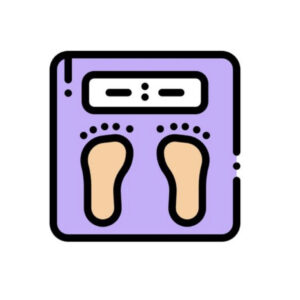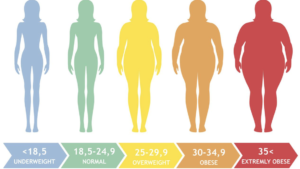BMI and Plastic Surgery – Does weight matter?
 Does weight matter when you’re considering Plastic Surgery? Yes and no. This is not a straightforward issue for any elective surgical procedure.
Does weight matter when you’re considering Plastic Surgery? Yes and no. This is not a straightforward issue for any elective surgical procedure.
Ideally, patients should be as close as possible to their ideal weight before any elective cosmetic Plastic Surgery procedure such as body contouring, breast surgery or facial aesthetic surgery. Weight and body mass is “just a number”, but it can be an important one.
Body mass index, or BMI, is one of the health factors that Board Certified Plastic Surgeons look at when evaluating the overall health status of their patients. Some surgery centers do not allow surgeries on people with a BMI over 30. The incidence of complications such as blood clots in the legs (DVT) or lungs (PE) can increase with higher BMI, together with other theoretical complications such as aspiration pneumonia, having a difficult airway and postoperative wound healing complications.
However, how vital is this number?
In some cases, BMI can be one of several markers of an unhealthy person. Together with other “comorbidities” (medical problems) such as smoking, diabetes, high blood pressure and other untreated or less-than-optimized health conditions, BMI values can suggest that elective surgery should be postponed until a more healthy weight is achieved (via weight loss or weight gain if severely underweight) and other health conditions are under control.
How is BMI calculated?
BMI is calculated by “kilograms over meters squared”, or weight divided by height squared/to the power of 2. You don’t need to know the metric system at all or remember math to calculate your BMI. Here is a useful online BMI calculator I used to refer to before our new EMR calculated BMI for us (thanks, Symplast!).
To see how it works, see this quick video where I plugged in my own height and weight to calculate MY OWN body mass index! I don’t mind sharing.
Obviously, a BMI of 22 is healthy. Having a BMI under 18 indicates that a patient is underweight and potentially malnourished or suffering with an eating disorder, and a BMI over 30 indicates obesity. Now, there are exceptions to every rule, such as being very slight-framed with little muscle mass or “big-boned” with very dense muscles (like my husband!).
What other factors regarding weight are important to consider?
In addition to weight and body mass, overall nutritional status is key when planning surgery. Many underweight patients, vegans or very strict “clean eaters” are actually deficient in protein, vitamins/minerals and other nutrients needed for healing. Likewise, being overweight and eating only fast food and non-nutritionally dense, whole, natural foods (think fruits, vegetables, healthy fats) can impede healing after Plastic Surgery.
We recommend that our patients up their protein before and after surgery, consider taking a multivitamin if they are not eating a well-rounded diet before and after surgery, and try to shop around the periphery of the grocery store (fresh produce, proteins, some bakery items in moderation) rather than down the aisles of packaged food products.
Lastly, weight should be stable – not yo-yoing up and down several tens or twenties of pounds around the time of surgery. Major weight gain or weight loss after surgery can affect the aesthetic results and final outcome of surgery negatively.
Plastic Surgery is an investment – one that we take very seriously – and one that our patients should as well. Being “healthy inside and out” means a healthy diet, stable weight, healthy mentally and emotionally and strong physically with good cardiovascular stamina and muscle strength. This is always important for the safest surgery, smoothest recovery and best surgical outcome!
To learn more about how to best prepare for surgery, visit our website page on this topic!

